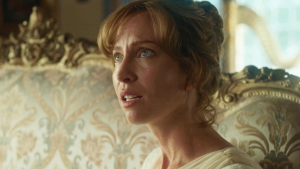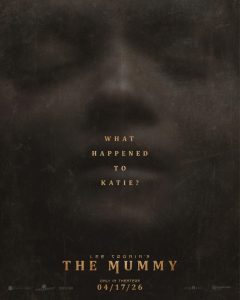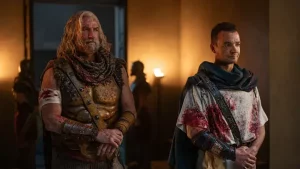
THERE WAS A DRAEM THAT WAS ROME…
BUT “MEGALOPOLIS” ISN’T IT!
Throughout the years, Hollywood has seen many famed directors rise to become legendary within the filmmaking industry, ascending on their own meticulous directorial merits when approaching a motion picture. Alfred Hitchcock, Stanley Kubrick, Clint Eastwood, Cecil B. DeMille, Martin Scorsese, and Stephen Spielberg are just some of the names of the great ones that have made their mark in Hollywood and etched their names in the illustrious tapestry of movies. While a new generation of directors have emerged in modern times such as Denis Villeneuve, Alejandro G. Iñárritu, Christopher Nolan, Peter Jackson, and Guillermo Del Toro, these legendary directors have been both respected by their peers and the entire Hollywood community as well as moviegoers everywhere. Such is the cases with director Francis Ford Coppola, who is among the noteworthy ranks of these “great directors”, becoming a classic household name that many (cinephiles and causal movie watchers) have come to known and the feature films he’s directed. Some of his films, including such iconic movies like The Godfather trilogy (1972’s The Godfather, 1974’s The Godfather: Part II, and 1990’s The Godfather: Part III) as well as 1989’s Apocalypse Now and 1992’s Bram Stoker’s Dracula, have become cinematic staples in not just in the realm of Hollywood, but in the history of movies. His critical acclaim for his several of those feature films have garnished numerous awards, with Coppola being the recipient of five Academy Awards, six Golden Globe Awards, two Palmes d’Or, and a BAFTA Award. Indeed, Coppola has been considered to be one of the prime figures in the “New Hollywood” movement (mid 1960s to early 1980s) and his name has been placed amongst the great directors of the filmmaking industry. Now, almost eleven years since his last picture release, director Francis Ford Coppola (with association with American Zoetrope and Lionsgate) gears up for his latest production in a acclaimed “motion picture event” with the release of Megalopolis. Does this movie embrace Coppola’s vision of cinematic storytelling or is it a superfluous vanity project that’s too ambitious for its own good?
THE STORY
The city of New Rome is falling apart and is reaching a boiling point, with Mayor Franklyn Cicero (Giancarlo Esposito) trying to stabilize economy and its people, but is unable to capture the populace’s attention with his mundane plane to fix the decaying metropolis. As the head of the Design Authority, Cesar Catilina (Adam Driver) is a man of wealth and privilege, but also has great vision for New Rome, looking to work with a new material known as Megalon to help build a society utopia for all, taking humanity out of the shadows of present day and into a brighter future. While being confronted as a playboy as well as various scandals and the ambiguous mystery surrounding his late wife’s death, Cesar remains steadfast to his mission, while Franklyn’s daughter, Julia (Nathalie Emmanuel) begins to falls for the enigmatic man, causing her father great distress and ire. Complicating Caesar’s endeavors in building his ultimate utopia society, which he calls Megalopolis, is his cousin, Clodio Pulcher (Shia LeBeouf), who is quite jealous of the popular leader and plots to take him down, working to destroy his rival’s reputation, trying to impress his father, Hamilton Crassus (Jon Voight), an extremely wealthy bank owner and to be considered to be the richest man in the land. Driving another wedge into Cesar’s dreams is Wow Platinum (Aubrey Plaza), a famed television reporter desperately in love with him, but is spurned by the man, marrying Hamilton instead in a bid to claim power and ascend to part of the ruling class of the city. As power shifts and debate rages over keeping to tradition or breaking away from it, plots and schemes begin to form amongst them all, furthering dividing the decision makers and plunging New Rome into a precarious precipice of an unknown future.
THE GOOD / THE BAD
Borrowing some of my opening lines from my review of The Fabelmans (as well as several other reviews I did over the years) …..being an amateur aficionado in the cinematic world of movies, I’ve come to appreciate (and admire) some of the great directors of Hollywood. While many will eternally debate on which one is the best, there’s no denying the fact that these directors (numerous and collectively) have proven to be adept in their crafting of feature films and bring powerful and memorable cinematic storytelling to both the industry and to moviegoers everywhere. Francis Ford Coppola is definitely one of those names that many out there know about, myself included, especially with some of his more memorable releases. Their no denying the fact that The Godfather trilogy (most the original and Part II, which are my favorites) are widely considered to be the “gold standard” of Hollywood filmmaking, with Coppola capturing a very impressionable and immerse story of family and power, with iconic characters and quotes that have been parody and duplicated throughout mainstream pop culture for decades. I mean, everywhere (other movies, tv shows, cartoons, video games, and novels) have all done a type of impersonation of Marlon Brando’s Don Vito Corleone. His other two big releases Apocalypse Now and Bram Stoker’s Dracula also deserve special recognition and are quite palpable and memorable pieces of filmmaking entertainment, earning the same type of caliber from Coppola’s magnus opus Godfather trilogy. Interestingly, I had no idea that Coppola was the one who directed 1996’s Jack and only learned about it while do some research about him for this movie. Well, I guess that’s why the movie itself is a bit more poignant and dramatic within its themes and material in a few areas.
Of course, not all of Coppola’s films have reached that same type of caliber as the projects that mentioned above, with several ones like 1982’s One from the Heart, 1983’s Rumble Fish, 2007’s Youth without Youth, and 2011’s Twixt were met with negative critical reviews and / or financial box office failures, lessening the once powerhouse director that produce such high level filmmaking. Heck, most of these movies I never heard of….and maybe that might be for good reason. Yet, even some powerful and legendary directors in Hollywood have a handful of “miss” production features in their catalogue. Perhaps an interesting notion of what I never knew was that most of his relatives and children have become known actors and filmmakers in the industry. This includes his sister Talia Shire (The Godfather and Rocky) as an actress, his daughter Sofia Coppola (Lost in Translation and Priscilla) as a director, his son Roman Francis Coppola (Moonrise Kingdom and The French Dispatch) as screenwriter and producer, and his nephews Jason Schwartzman (Rushmore and Scott Pilgrim vs. the World) and Nicholas Cage (The Rock and Face/Off) are actors. In the end, there is no doubt that the legacy that Coppola has left on the cinematic tapestry of filmmaking that, while not every one of his releases as being memorable, still manages to cultivate lifelong career in the movie industry, leaving his mark on the theatrical motion picture with several highly influential endeavors that have (and will) endure the test of time for generations to come.
This brings me back to talking about Megalopolis, a 2024 sci-fi drama piece and the 23rd overall film to be directed by Franics Ford Coppola. As stated in my opening paragraph, it’s been quite some time since Coppola has released a directorial film (not since 2011’s Twixt) and there was plenty (and I do mean plenty) of rumors out there suggesting when the acclaimed director would be releasing his next project. Many even questioned whether or not that Coppola would ever direct again, especially after his last several films received negative reviews and mediocre box office results. So, to me at least, it was kind of a big surprise when Coppola officially announced that his next movie would be coming out in 2024 and that it was going to be a “passion project” for the director. To me, when director’s say a “passion project”, it usually means that the director would be very meticulous and is extremely eager about the endeavor or incredible interested in the source material. To be sure, Coppola was quite interested and eager to get Megalopolis off the ground, coming up with the idea some forty years ago and been trying (through the several decades since then) to get the project to become a reality. After setbacks and studios turning him down, Coppola (in a stunning move) self-finical the entire production himself, with estimate cost of $125 million. After that, I really didn’t hear much about the upcoming movie until I saw a few promo material here and there, including the film’s movie trailer previews. The footage shown was a bit ambiguous; acting more like a “teaser” than a traditional theatrical trailer preview, yet still promised a large recognizable cast (i.e. Driver, Esposito, Emmanuel, Plaza, Voight, Fishburne, Schwartzman, and Hoffman). So, basically, I was going to see this movie with very little knowledge of the feature’s plot, which can be seeing as a good thing…. depending on the situation and circumstance.
Prior to its official theatrical release, advance reviews began to emerge online about Megalopolis, and they weren’t very flattering about Coppola’s so-called “passion project”, with many citing on how convoluted and inconsistently choppy it was. There were a few positive reviews, but the negative ones definitely outweighed those ones. This, of course, didn’t bode well with many moviegoers out there, with the feature being released alongside DreamWorks’s The Wild Robot, which drew in bigger crowds, and with Warner Bros.’s Joker: Folie à Deux coming out the following week, Megalopolis faced a rather “one week shot” to make an impression. So, while I didn’t go during its opening weekend, I did see the movie several days after, which was mostly due to my local movie theaters pulling the film from the screenings due to the upcoming Joker: Folie à Deux release. Thus, I only had a very limited time to see the movie at my local movie theaters. Now, after waiting a few weeks after seeing it, I am ready to share my thoughts on Coppola’s latest film. And what did I think of it? Well, unfortunately, I do have to agree with many of those negative reviews about the project. While cinematic ambition is there with plenty of strong themes and a stacked cast, Megalopolis is more of a “vanity project” for Coppola rather than a passion project, which creates a confusing and too overtly complexed feature film that feels too clunky, too misguided, and too much in love with its own story, characters, and ideas to make heads or tails of. It’s definitely ambitious and aims for some lofty expectations, but never soars or reaches those filmmaking hopes.
With Coppola at the helm, Megalopolis is to be considered (by the director) as a “passion project” and, while I do consider it more vanity than passion (more on that below), it does feel like the famed director is pouring a lot of his heart and soul into this endeavor. While other film directors and studios will churn out “cash grab” cinematic projects for big tentpoles franchises or even to fund other smaller ones, Coppola seems to have a strong desire for neither of those factors, choosing to make a movie that has his own personal mark on it and display the way that it was probably intended to be. Since he mostly financed the entire project by himself, it’s seems fitting that he has the creative control / license over Megalopolis, which he does, and feels that way throughout. To be sure, Coppola has a grand story to tell that is filled complex characters, lofty ideas, and intriguing tale that mixes alternative history motifs and Roman society laurels to make up a rather cinematic concept that is quite an ambitious to tackle. As such, the film is presented in a grandiose way, with plenty of scope and grandeur heaped upon the narrative, with Coppola providing an immersive tale of greed and power and the hopes for change…if it comes at all.
Naturally, the story’s themes of society and those in the thralls of power and decision making definitely speaks volumes and are at the very center of the feature’s narrative. There is no doubt that Coppola has something to say about today’s views of both the present and of the near future, which sees society clashing with such familiar tones of ideology, beliefs, and social standings in the populace classifications structure. This, of course, mirrors Coppola’s usage of Ancient Roman society and how the such a lofty empire was ensnared within its own trappings that crumbled into ruin. Such depictions of excess and decadence of New Rome’s upper class society is a clear and cut representation of Roman society and how the neglected they were to the state / well-being of the average commoners. Plus, it is also interesting to see the different view points within the characters of Cesar and Cicero, who see difference vision for New Rome. One looking to the future and sees opportunity in solving many problems of what changes could happen, while the other looks to the present and sees opportunity in solving many problems at the current moment. It’s definitely somewhat of the dichotomy of today’s society viewpoints and those in position power, which does raise some fundamental questions. Should all best efforts for a better utopian society be pushed towards the distant future or should they be placed in the “here and now”? It’s definitely a question for the philosophers out there. This is where I think that Coppola did the best job in Megalopolis; interjecting such human themes of greed, power, corruption and beliefs into a cinematic project that breathes in and out this idea with great enthusiasm and understanding.
From a visual standpoint, Megalopolis certainly does look quite lavishing and expansive within its own production quality, bringing Coppola’s unique vision to life that mixes both a modern world with touches upon both the fantastic and ancient Roman history throughout. Given this narrative takes place in a somewhat “alternative reality” of New York City that is dubbed “New Rome”, the usage of such several fantastical elements and flourishes are felt in a more comfortable arena, with Coppola embellishing the background setting with the usage of Roman style motifs, aspects, and accents in almost every visible scene. This particular nuance is something that is indeed welcomed, with the garland, design work, and sometimes clothing attire is infused with modern day architecture and wardrobes; making a very unique yet visual capable depiction of a society of old and new aesthetics. Plus, everything else about the film’s production backdrop looks quite lavishing and intricately details from Madison Square Garden being turned into a Roman-esque Chariot racing arena or even some of the more fantastical elements in describing Cesar’s Megalopolis do come alive of Coppola’s dream of reality brushing up against fantasy shines through. Thus, the film’s “behind the scenes” team, including Beth Mickle and Bradley Rubin (production design), Lisa K. Sessions (set decorations), Milena Canonero (costume designs), and their entire art direction department for their efforts in bringing Coppola’s unique movie landscape and setting to life in such vibrant and vivid way.
Additionally, the cinematography work by Mihai Malaimare Jr. is pretty decent and does capture a lot of interesting camera angles to help provide plenty of cinematic nuances throughout the feature’s presentation. Such dynamic shots are poised to help the film look appealing and enticing in and out of bigger wide-angle views. Lastly, the movie’s score, which was composed by Osvaldo Golijov (who has worked with Coppola several times beforehand), does a somewhat adequate job in capturing Megalopolis’s music from beginning to end. Indeed, some parts are elevated by Golijov’s composition, yet it also feels a bit generic at times; never really going beyond the standard film soundtrack for a drama piece. It’s okay, but nothing to write home about.
Unfortunately, Megalopolis bites off more than it can chew, offering up a feature film that’s problematic throughout the entire endeavor and ends up more confusing than entertaining, especially when consider the various (and numerous) problems throughout. How so? Well, for starters, the movie itself is a jumble mess and sort of unclear what it wants to be. Yes, there is something to be said about the film’s plot and what the movie is trying convey within Coppola’s thematic vision, yet gets lost within the director’s own ambition and ultimately fails to produce something substantial within its shaping, undertaking, and overall execution. As mentioned, the film has been cited by many as a “passion project” for Coppola, but in reality it’s actually a “vanity project”, with fame director making the movie for himself and only himself. I mean….if one really looks at it….he directed the film, he wrote the script for it, and even bank rolled the entire project. There is no doubt that the movie wasn’t made for public in mind, but rather in making Coppola’s vision a reality for himself, without the care of critic scores or box office results. With this mind, I do certainly praise him to a certain degree. However, at the same time, it feels too much “self-service” to Coppola’s vanity and comes across as such for his viewing pleasure experience.
In conjunction with that idea, Megalopolis is, for a lack of better terminology is very much “in love with its own self”, with Coppola indulging in many scenes and oddities throughout the film’s runtime and creates a bit of a headscratcher at times. As stated, the director’s vanity is clear in almost every scene and almost feels like a “fever dream” at times, which does cause some moments and sequences feel rather awkward and rather goofy. These several surreal moments feel a bit too fantastical and merely presented in the film for “visual appeal” and don’t exactly serve much purpose beyond that. While this can be fine (to a degree), such frivolous nuances should only be used sparsely, especially when a movie is trying to focus on its story, themes, and characters. This causes a lot of distraction in the film, with Coppola lost within his own vanity of passions in looking at Megalopolis objectively. This sort of unfocused nature continues within the overall story. Yes, I do believe that the story being told is quite interesting, yet it is presented in way that feels too loose within its own development of script shaping. It also doesn’t help that the script’s actual dialogue driven moments sometimes a bit muddy in certain parts, generating some rather goofy and clunky character dialogue sequences that are written rather poorly. Perhaps if Coppola didn’t handle the script aspect of the feature and had someone else write it, then (maybe) Megalopolis could’ve had a better storytelling narrative.
Additionally, another major criticism that I have towards the movie is some creative decisions that Coppola essentially doesn’t really expand upon, leaving some elements open to interpretation or just baffling to behold. This contains part where the feature treads into some of the more fantastic subject matter, including Cesar’s ability to stop time (and what the significance it holds) as well the actual purpose of Megalon, super rare substance material that Cesar hopes to utilize to build his utopian paradise. These particular two points are left unanswered throughout much of the movie’s lengthy runtime, feeling they are only there for the usage aspects to be “cool” and “creative” or merely there for narrative progressions in the background. Furthermore, there is a lot of moving pieces in the story’s background that aren’t fully realized in the correct way. This includes the mysterious death of Cesar’s late wife, a derelict Russian satellite, Clodio’s playboy bravado, Wow’s scorned ambitions, Cesar’s fevered visions of reality, and the actual construction of his Megalopolis utopian. All of these are somewhat presented in the movie, yet feel quite ambiguous with how they are fully presented, ultimately becoming half-bake and never fully realized.
Another big area where the film suffers greatly is in its overall editing or rather odd choppiness the feature has during the latter half. To be sure, Megalopolis is presented as a grand tale of power and greed, with Coppola imaging a sweeping a modern day epic like motion pictures of Hollywood yesteryear. The first half of the movie had a somewhat decent pacing and overall flow. Yes, some things could’ve been better explained, but it was still coherent enough to follow / understand as well as setting up the various characters in their aims, goals, and ambitions. The second half of the feature, however, is, for a lack of a better term, disjointed and feels far less tightly cohesive as to its former section and ends up being sluggish and bloated. Yes, there is clearly something to be said within this portion of the movie, which does bring a climax and everything to “a head” towards the film’s ultimate conclusion, yet it never comes together in a satisfying manner. Furthermore, this sort of fragmentation of the movie almost feels like Coppola’s true vision for Megalopolis was intended to be almost like six hour epic and was severely edited down for a 138 minutes (two hours and eighteen minutes) runtime. Again, certain storytelling elements feel clunky, character motivations are rather rushed or vague, and certain visual moments of the feature are left unclear. Thus, it comes without saying that Megalopolis’s latter half feels like it was looked over and chopped up repeatedly, leaving a lot of the supposed “intended” material on the cutting room floor. This, in essence, leaves the movie in rather confusing and unappealing way, rendering the feature in limbo state and leaving huge chunks of the story out of its finish product.
The cast in Megalopolis is one that is recognizable and familiar, especially the main players in the lead and larger supporting roles, with ensemble cast most likely eager to be a part of a Coppola movie. That being said, while there enthusiasm and energy can be felt in their respective performance whenever on-screen, the character they represent feel rather generic and clunky, never really going beyond their initial setup nor deviating beyond what they mean to the overall story being told. Again, this is where the film’s script rears its ugly head and gives some rather stock-like characters that could’ve shown a spotlight on either the actor or character, yet never rises above the mediocre and commonplace tropes of storytelling. Leading the charge in the movie is actor Adam Driver, who plays the central character of Cesar Catilina, a visionary man who sees potential in man’s future with his utopian society. Known for his roles in Star Wars: Episode VII – The Force Awakens, Marriage, and House of Gucci, Driver has certainly had made a name for himself throughout the past decade, cultivating a body of work in many meaty and substantial roles as the leading man, which makes his involvement on Coppola’s movie more intriguing and enticing to watch. For his part, Driver actually does a pretty decent job in the role, playing up Cesar Catilina’s inane and sometimes smug intellect / bravado as he desires for the people of New Rome to embrace his Megalopolis vision for all and how he perceived it to be. It’s definitely an interesting character, yet it does get a bit muddy along the way, especially in the latter half of the movie where things feel fragmented and choppy. I do get what Coppola and his team are trying to convey with Cesar during that portion, but it comes off as too awkward and clunky. Plus, Cesar, as a whole, does come off as a bit contrive and a bit too perplexing, especially with his backstory and relationship with others. Yes, he’s a playboy and wealthy philanthropist, but the character does feel needlessly more complex than he indeed to be. Plus, as mentioned above, it’s quite confusing as to why he has the ability to stop time and why is he only allowed to do it. Still, Driver did manage to cultivate a somewhat decent performance in the role and I did like him as Cesar Catalina. I just wish that the character was written better.
After Driver’s Cesar, actress Nathalie Emmanuel (Game of Thrones and Dark Crystal: Age of Resistance) gives a somewhat average performance as Julia Cicero, Cesar’s love interest and the daughter of Mayor Franklyn Cicero. I do like Emmanuel as an actress and she can definitely hold her own in various roles and capacities, but I didn’t quite get a good feeling for her role as Julia. She is sort of an ambiguous character for majority of the feature, who is seeking answers in Cesar’s past, while also falling in love with him, while also trying to be a daughter to Cicero. It’s something that suppose to be complex for the character build, yet it comes off as rather clunky and messy at times. Of course, Emmanuel was okay in the role, but maybe needed some better guidance in how the character is and some better material to play around with. Additionally, while I do like both Driver and Emmanuel as acting talent, I don’t think their on-screen chemistry was anything to “sizzle” over. I mean….don’t get me wrong….they weren’t indifferent to each other, but it felt a bit forced and awkward at times in seeing them pair together, which meant that have some difficulty into playing into the relationship between Cesar and Julia a few times.
Looking beyond those two characters, actor Giancarlo Esposito (Breaking Bad and The Usual Suspects) does quite an impressive job in playing the character Mayor Franklin Cicero, the arch-conservative mayor to New Rome / Julia’s father. To me, I think that Esposito is a good actor and definitely has the quite a way of delivering his lines in almost every role he has played and usually creates a very multi-faceted persona throughout his various performances and roles. Thus, to have him play such a character like Mayor Cicero is very interesting and very much that plays to Esposito’s strength, with Cicero giving a lot of grandstanding speeches and being an opposition towards Cesar’s ambitions and visions for New Rome. As mentioned, Cicero represents the somewhat “old guard” in leadership ways of thinking and does make for a “meaty” character that has substance within his character built. It may be stock-like and almost formulaic to a certain degree, but it does serve the movie for what it needs to be. Additionally, this makes Cicero a great character foil towards Cesar, with their differences of ideology opinions and visions for the people differ, which makes for some clashes in their character dialogue moments; both of which Driver and Esposito are terrific in their scenes together.
In the villain category department, Megalopolis has several individuals who act like the film’s “baddies” and try to stop the efforts made by made by Cesar, Julia, and Cicero for realizing their ambitious endgame plans. Of this group, who I was most impressive with is actress Aubrey Plaza (Parks and Recreation and Ingrid Goes West) as Wow Platinum, a young TV newscaster journalist who desires money and power. While Plaza has always been known for her deadpan comedy roles, which is handles quite well and probably why she has been somewhat “type cast” in various characters in that genre. Thus, to have her participate in a Coppola movie is one of an odd move indeed and one that I didn’t expect. However, Megalopolis gives Plaza plenty of spotlight character moments to play around with and actually its all for the better, making Wow a very dynamic character within her dubious and nefarious plotting to gets what she wants. The character herself is one that is interesting and almost wish that there were more to her, pushing aside some other supporting players in favor of her. Yes, one could say that Wow is sort of a “cliché” female antagonist in her revenge / ambition plotting, but Plaza manages to overcome those tropes in making a very intrigue role.
Behind her, actor Jon Voight (Deliverance and Enemy of the State) does an “even keel” job as Hamilton Crassus III, Cesar’s wealthy uncle and the head of Crassus National Bank. Voight is certainly a talented actor with his career showcasing plenty of memorable roles throughout the years. Thus, Voight lends some “seasoned” weight to Megalopolis’s proceedings and does certain hold his own just with his screen presence. As for his character, Crassus comes off as a bit commonplace wealthy tycoon, who doesn’t outright hate his rival and those who look to oppose him, but more like the power hungry man who desires money and power, oblivious to those around him. Thus, coupled with Voight’s performances makes Crassus a level-headed character that is doesn’t really bring many surprises, but still provides plenty of importance to the main story.
The most disappointing and my personal least favorite character in the entire film would be the character of Clodio Pulcher’, Crassus’s debonair and vapid son / Cesar’s cousin, who is played by actor Shia LaBeouf (Transformers and Lawless). Why is he my least favorite? Well, Clodio, for a lack of a better term, is rather annoying and acts too much like goofy playboy loser that comes off as bit too much and too cliché. Again, that was probably the reason behind his character, especially as his story threads plays out in the latter half of the movie, but it comes off as too revile and too cringeworthy at moments; a rather bad and formulaic “nemesis” archetype to the main protagonist. Even worse is that LaBeouf’s acting is just mediocre and again feels like the role was played with a cringeworthy effort in the more revile way (and not in a good way). There may be a little bit more mileage in the character if you like LaBeouf or not, but I would rather watch him in some of his other character roles than Clodio.
Perhaps the only one that really didn’t do much to in the movie was actress Talia Shire (Rocky and The Godfather), who plays Constance Crassus Catilina, Cesar’s mother. While there is some intent for her to being a small important role in describing Cesar’s parentage and relationship with his mother, it really doesn’t amount to much and is one of those storylines threads that doesn’t go anywhere and left unanswered in the ending. Shire, of course, is a good actress and does get her moment as Constance, yet something about the character leaves a lot to be desired as if a subplot involving Constance / Cesar was built into the movie, but ultimately dropped to the cutting room floor. Such a shame, Lastly, I did feel that actor Lawerence Fishburne (The Matrix and John Wick Chapter 2) does a great job as the character of Fundi Romaine, Cesar’s driver and assistant as well as the film’s narrator. While to be more precise, Fishburne does a fantastic job in playing the movie’s narrator, especially with his auditory and gravitas sounding voice that is interjected throughout Megalopolis’s narrative. As Fundi Romaine, he is okay and acts as a sort of assistant “confidant” to Cesar, which is fine, but Fishburne is far better as the film’s narrator.
The rest of the cast, including actor Jason Schwartzman (Rushmore and Scott Pilgrim vs. the World) as a member of Cicero’s entourage / aide Jason Zanderz, actress Kathryn Hunter (Poor Things and Rome) as Cicero’s wife Tersea Cicero, actress Grace VanderWaal (Stargirl and Hollywood Stargirl) as the virginal teen pop star sensation Vesta Sweetwater, actress Chloe Fineman (Saturday Night Live and Big Mouth) as Clodia Pulcher, actress Isabelle Kusman (Licorice Pizza and The Fabelmans) as Claudine Pulcher, actress Madeleine Gardella (Crushed and Natural Disasters) as Claudette Pulcher, actor James Remar (North Shore and Renaissance Man) as Charls Cothope, D.B. Sweeney (Dinosaur and Fire in the Sky) as Commissioner Stanley Hart, actor Bailey Ives (making his debut with this movie) as Huey Wilkes, and actor Balthazar Getty (Lord of the Flies and Lost Highway) as Clodio’s right-hand man Aram Kazanjian, are delegated to minor supporting characters in the film. Like the main cast of the movie, while the acting talent involved in this group is great, most of their respective characters are rather “meh”, which (again) I do understand they are supporting players in Megalopolis, but a few of them could’ve been better handle in a few spotlight moments.
FINAL THOUGHTS
When does an empire die? Does it collapse in one terrible moment? No, no… But there comes a time when its people no longer believe in it……such are the words that are echoed throughout the entire story of Cesar Catalina and his journey (and struggle) to change the status of New Rome’s bleak existence into a shining utopia future in the movie Megalopolis. Director Francis Ford Coppola’s latest film turns a four decade filmmaking vision into a reality, delving into its Roman-esque alternative reality that displays a power struggle amongst ambitious idealism of men and how society (those in the upper echelon) wield their control amongst the populace for bothR good and evil intent. Despite its ambitious aims of thematic storytelling, visual aesthetics, and collective cast of acting talent, the movie itself falters greatly underneath Coppola’s high aspirations, especially when examining the film’s poor direction, fragmented pacing, choppy narrative, several confusing side stories, weird creative decisions, unclear plot devices, and rather flat and thinly-sketched characters. Personally, I didn’t like this movie. I give credit where credit is due, especially for Coppola’s ambition and wanting to get his “passion project” to become a fully realized feature film. That being said, the final result is a bewildering “fever dream” that’s too convoluted and too confusing to make sense of it all. For me, it had the scope and interesting thematic elements, but had too much excessiveness throughout and was much in love with its own story and ideas. The cast was stacked, but their characters (and the direction given to them) were bad, while story’s Roman aesthetics kept me visually intrigued, yet still fell flat within its very choppy allegory mythmaking. Thus, my recommendation for this movie would definitely have to be a solid “skip it” as the feature doesn’t really do much beyond playing to the artistic vanities of Coppola’s styles and scope, leaving little room for the average moviegoer to full enjoy the picture in its original intent and purpose. Basically, if you were expecting something grand, mind-blowing, or even something of an immersive experience like Dunkirk, 1917, Inception, or Dune, you’ll be disappointed. Even those expecting something fantastic from the illustrious director will find this movie’s standards rather lacking and weak. In short, Megalopolis has its visions soaring quite high, yet fails to deliver on that cinematic promise. To quote Gladiator “There was a dream that was Rome. It shall be realized.” Sadly, Coppola’s Megalopolis isn’t that dream.
2.0 Out of 5 (Skip It)
The Official Website for Megalopolis Link: HERE
Released On: September 27th, 2024
Reviewed On: December 21st, 2024
Megalopolis is 138 minutes long and is rated R for sexual content, nudity, drug use, language, and some violence
The post Megalopolis (2024) Review appeared first on Jason’s Movie Blog.









